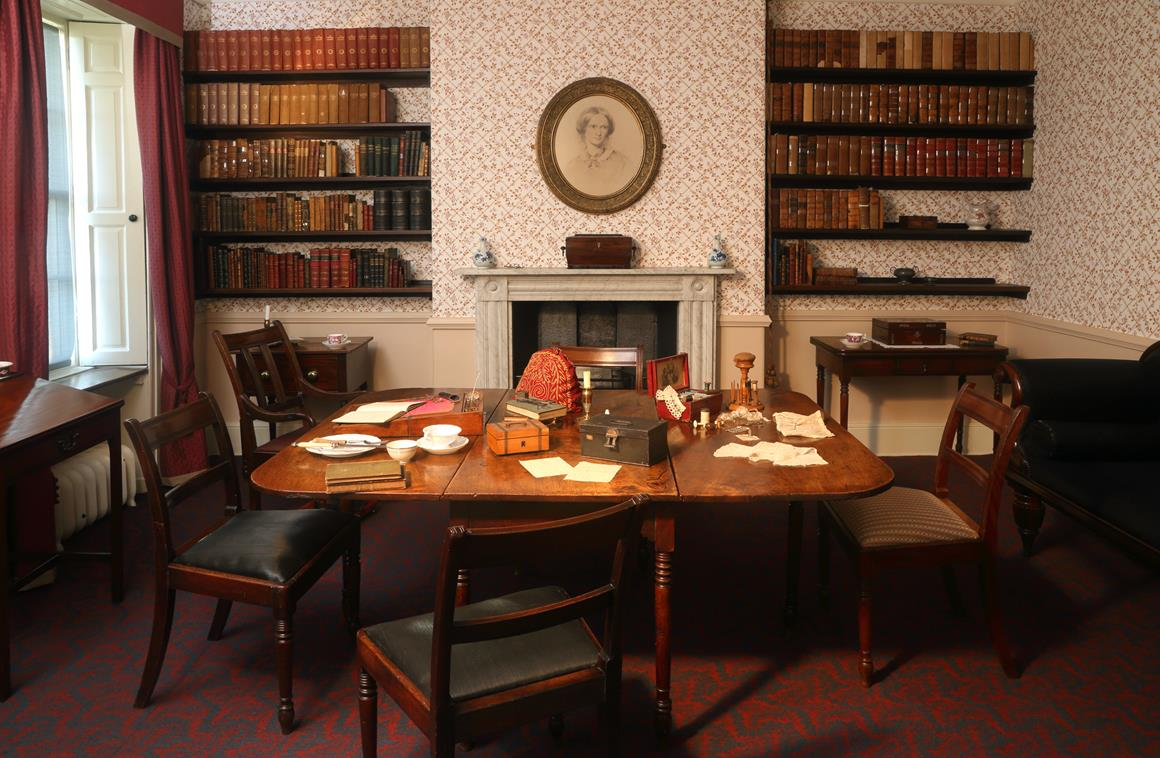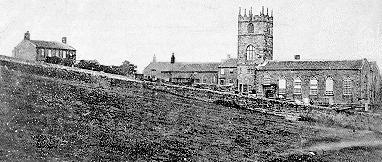Thanks to Nick Holland who posted on Twitter:
Wonderful portrait of Ellen Nussey in old age, the close & faithful friend of Charlotte, Emily & Anne #Bronte
I knew only two portraits of Ellen Nussey
Ellen Nussey first met her lifelong friend Charlotte Brontë in January 1831 at Miss Wooler’s school Roe Head, Mirfield, where they were both pupils. Ellen was 13 and Charlotte 14. She was a steady, conscientious and reliable friend for Charlotte, and the Reverend Patrick Brontë approved their friendship. Visiting the Parsonage often, she was soon also a friend of Anne and Emily. It was during her time at Roe Head that she began her correspondence with Charlotte, which lasted until the end of Charlotte’s life, and which is responsible for so much of what we know today of Charlotte’s life.
It doubtless meant something in her development that at an impressionable age Charlotte should have been introduced occasionally to a prosperous, and even luxurious environment. She loved Ellen
forgottenbooks/Charlotte_Bronte_and_Her_Sisters
Ellen helped Charlotte with packing her bags when she had to go to London. Ellen had much more knowledge about fashion and the appropriate things a woman should have in a situation like this.
They spend holidays together.
Ellen was besides Charlotte when Anne Bronte was dying and helped Charlotte with all the things need to be done afterwards.
When Charlotte Brontë married her father's Curate, the Rev. Arthur Bell Nicholls, at Haworth in June 1854, Nussey was one of two witnesses present. Their engagement had caused a cooling in the friendship on Nussey's part, who was probably jealous of Brontë's attachment to Nicholls, having thought they would both live as spinsters. But not only this. After the marriage Ellen received this letter from Charlotte:
to ELLEN NUSSEY, [20 October 1854]
Arthur has just been glancing over this note -- He thinks I have written too freely about *Amelia &c. Men don't seem to understand making letters a vehicle of communication -- they always seem to think us incautious. I'm sure I don't think I have said anything rash -- however you must burn[three underlines] it when read. Arthur says such letters as mine never ought to be kept -- they are dangerous as lucifer matches -- so be sure to follow a recommendation he has just given "fire them" -= or "there will be no more." Such is his resolve. I can't help laughing -- this seems to me so funny, Arthur however
Yours affectionately
CB: Nicholls (295)
After the death of Charlotte Brontë in 1855 Nussey devoted the rest of her life to maintaining the memory of her friend, and she was often sought out by Brontë enthusiasts and biographers.
Ellen Nussey died in 1897, aged 80, at Moor Lane House in Gomersal in Yorkshire. Following her death, her possessions and letters were dispersed at auction, and many of Charlotte Brontë's letters to her eventually made their way through donation or purchase to the Brontë Parsonage Museum in Haworth in Yorkshire.
New painting
I asked Nick for more information. His answer: It's by Frederic Yates, an artist who moved to England from USA in 1890 so he must've painted Ellen between 1890-1897. Here is more information about this painter. wiki/Frederic Yates
I was wondering, is it really a portrait of Ellen Nussey? I asked it to the Bronte Parsonage Museum and this is the answer.
| Hi Geri - our collections team have advised that the portrait in question was donated to the Brontë Society not long after its formation in 1898, prior to the museum moving to its current location at the Parsonage. The portrait has always been documented as being of Ellen Nussey in later life. Hope this helps!
Sure it helps. I am excited
I learned something new | |||





Hello Geri, this is wonderful news about the portrait! It does look like Ellen, and thankfully it was confirmed that yes, it is in fact her...it's beautifully done. Bless Helen for NOT burning her letters from Charlotte...I think Mary burned most of hers, so sad, but at least we have Ellen's, they've given such an amazing glimpse into Charlotte's mind and heart.
BeantwoordenVerwijderenLovely catching up with you and 'the family'...I've actually been feeling a lot like Charlotte lately, when life had overwhelmed her and she struggled desperately with being creative. It's all I've been able to do to create art for my classes, the children are wonderful and it makes all the struggling worth it in the end...but still, it's challenging. I hope things calm down soon.
Best to you Geri, and thank you for always being a voice and touch-point for our dear Brontes.
xo Jessica
It is so good to hear from you! I am happy. But a little sad that life is a bit hard fto you you. . You know at the end Charlotte found happiness, in a way she didn't expected? ;-) Great that you can create art for ""your"" children, I am happy to read. I wish you strenght for the difficult things in your life. I hope to hear from you now and then......
VerwijderenYes, bless Ellen for not burning the letters.
xxxx Geri